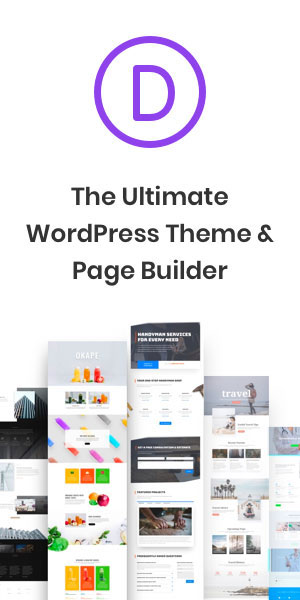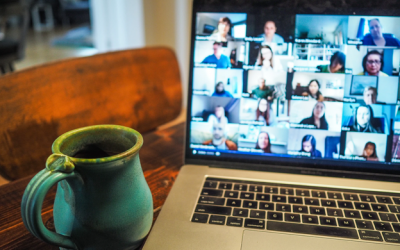
Did you know that the word “company” comes literally from the military context?
It means a mass of soldiers.
It’s fair to say that the future of each company depends on the way its management treats the mass of its “soldiers”, a.k.a. the employees. That explains the recent urgency for developing employer branding strategies. Those policies define everything positive that a company does in order to be seen as a thoughtful employer who knows how to take care of its people.
The big unexpected challenge came with the pandemic though. Covid disrupted our normality, and the lockdown changed the workflow, while company leaders and VPs of HR were discussing employer branding policies. And they were tested if they can truly stand behind their words. That changed everything.
The way we talked about wellbeing at work before Covid is completely different from the way we should bring up the topic right now.
Before Covid, the topic was covered mainly in a corporate monologue that included awareness talks about a healthy lifestyle, meditation, sports, walks, water consumption, blue light glasses, etc. It was mainly focused on employee wellbeing and how the job with its duties, expectations, stress levels, and environment affect the person’s overall health and happiness. Of course, all these efforts are amazing, but the important point to highlight here is that in a post-Covid community they are already the bare minimum.
Now, after a catastrophic year of disruption, fear, frustration, and immense losses, wellbeing at work has a completely new meaning and needs. Work not only physically entered our homes, but it also blended with our lives. The employer entered the very intimate space of its employees – their homes.


It took zoom calls to be interrupted by toddlers for the employers to see firsthand that when we go to work, we do bring all our lives there, including our thoughts, everything that has happened to us, our worries, as well as our mundane daily tasks. And of course, all that invisible mental luggage we carry around with us is having an impact on our performance. The pandemic helped prove that work and personal lives are tightly blended, as the chartered psychologist Gemma Leigh Roberts says.
That’s why the current mental health conversation needs to move further ahead. It needs to expand from the topic of employee wellbeing at work to how the work environment help the employee’s life during tough times, such as health problems, depression, death and loss, to mention a few. How can the company provide a safe space for an employee with personal struggles?
“Why do we have to do that?” I can hear someone asking.
We do not have to do it, of course, but if a company truly wants its soldiers to stay at the field for the long-term mission, the understanding of wellbeing needs to be expanded to heights it has never reached before.

The difference that a company can make in a person’s life through providing a caring environment, that is positive, open, non-judgmental, supportive and empathetic, would pay dividends and is a win-win in the long term. Every well-considered and humane effort that helps the employee to feel more calm and uplifted will contribute to their productivity, sense of belonging, and quality of work.
When talking about how to change the mental health dialogue at work, the cross-cultural therapist Esther Perel pointed out one key question we should all ask ourselves and those around us when we go back to the office environment:
What did you learn during this year of pandemic?
I believe that question should be directed to companies and their leaders. Perhaps, we can elaborate it, when asking our bosses: What did you learn about people management during this year of pandemic?

If I put myself in the shoes of an employer, here is the action plan that I would focus on:
The first steps of defining a relevant mental health strategy will start with rethinking leadership styles, management models, workload, social support, task clarity, and motivation reinforcement. Then there will be evaluation of the possible existence of a toxic environment; followed by considering how the company makes people feel included, how its leaders encourage the sense of belonging, how they talk about failures, how they treat mistakes, how they encourage effort and proactivity, how they eliminate existing micro-aggressions, how they normalize mental health conversations and how they try to remove the stigma around seeking help.
The answers to all these questions and many more will build a solid base for establishing a mental health and wellbeing policy that each company can implement. Of course, if they want their people to be there for a marathon, not a sprint.
Perhaps the most valuable takeaway from this text is summarized in the following way:
The future of wellbeing at work means to understand the life of employees from a holistic perspective, taking into consideration the totality of their lives and experiences.
And the big next step for both employers and employees includes two key moments – evaluations and conversations. If you are an employee, evaluate your work environment, think of areas of improvement, and bring up the topic with your leader, HR or colleagues you can trust. If you are an employer, evaluate the work environment that you provide, invite your soldiers to talk to you, discuss and share, and be prepared to listen with an open mind and empathy.
Stay tuned for more articles on wellbeing at work.
Career success is all about being able to cope with whatever comes your way! Do you want to join the #1 Career Membership in the UK and Europe? Click here!
Download FREE our 21-Day Career Jumpstart Guide
You Might Also Like
Dealing With Toxic Work Environment: 3 Solutions to Help You Feel Better at Work
How to Set LinkedIn for Beginners: The 7 Best LinkedIn Profile Tips
4 Ways to Find (And Keep!) a Remote Job in Today’s Workforce
4 Common Cover Letter Mistakes
4 Best Practices for Building a Top-Notch Team of Remote Freelancers
From Job Seekers to Hiring Managers: Job Interview Tips You Need to Know
How to Choose a Career You Love: a Young Person’s Guide to Success
Stay Up to Date With The Latest News & Updates
Access Premium Career Advice
Join our Career Success Club today!
Follow Us
Join us on social media and become part of the Career Jump Tribe!






